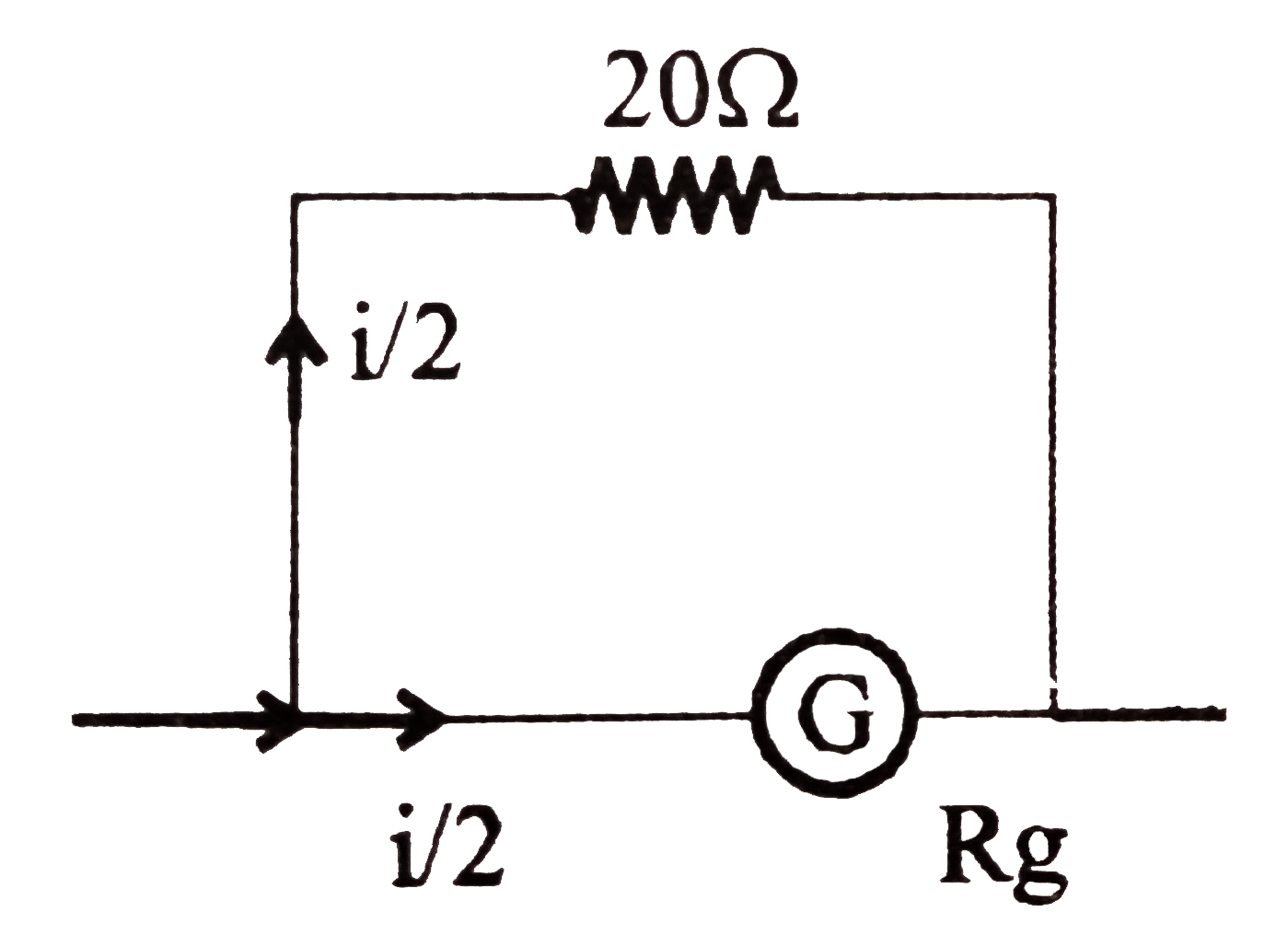When a galvanometer is shunted with a 4Ω resistance the deflection is reduced to1/5. If the galvanometer is further shunted with a 2Ω wire the new deflection will be (assuming the main current remains the same)
59 of the deflection when shunted with 4Ω only
513 of the deflection when shunted with 4Ω only
113 of the original deflection only
19 of the original deflection only
The correct Answer is:B, C

I/5=I(4)G+4
G+4=20
G=16Ω
I=(4/3)16+43=I13

Topper's Solved these Questions
- BOOK - BANSALCHAPTER - MASTER PRACTICE PROBLEMEXERCISE - Subjective107videos
MASTER PRACTICE PROBLEM
- BOOK - BANSALCHAPTER - MASTER PRACTICE PROBLEMEXERCISE - Additional topic70videos
MASTER PRACTICE PROBLEM
- BOOK - BANSALCHAPTER - MASTER PRACTICE PROBLEMEXERCISE - Reasoning75videos
MASTER PRACTICE PROBLEM
- BOOK - BANSALCHAPTER - FLUID MECHANICSEXERCISE - PYQS AIEEE10videos
FLUID MECHANICS
- BOOK - BANSALCHAPTER - SEMICONDUCTORSEXERCISE - CBSE Question32videos
SEMICONDUCTORS
Similar Questions
When a galvanometer is shunted with a 6Ω resistance,the deflection is reduced to one-third.If the galvanometer is further shunted with a resistance of 3Ω the deflection is reduced to
View Solution[" 129.When a galvanometer is shunted with a "6Omega" resistance,the deflection is reduced to one-third.If the "],[" galvanometer is further shunted with a resistance of "3Omega" ,the deflection is reduced to "],[[" (1) one-sixth "," (2) one-fifth "," (3) one-seventh "," (4) two-third "]]
View Solution
Knowledge Check
- Question 1 - Select One
A galvanometer shows a reading of 0.65 mA. When a galvanometer is shunted with a 4Ω resistance, the deflection is reduced to 0.13 mA if the galvanometer is further shunted with a 2Ω wire, the new reading will be (the main current remains the same)
A0.60mAB0.08mAC0.12mAD0.05mA - Question 2 - Select One
When a galvanometer is shunted with a 4Ω resistance, the deflection is reduced to one-fifth. If the galvanometer is further shunted with a 2Ω wire, determine current in galvanometer now if initially current in galvanometer is I0 (given main current remains same).
AI0/13BI0/5CI0/8D5I0/13 - Question 3 - Select One
When a galvanometer is shunted by 5 Ω resistance, the deflection is reduced to 1"/"6th of the original value. If galvanometer is further shunted with a resistance of 10Ωthe deflection (as measured from original value) will be
Areduce by 120Breduce by 130Creduce by 131Dreduce by 631
[A constant current source as shown in figure is connected across a galvanometer . If galvanometer is shunted by 4Ohm resistance then current in it is reduced to 14th of initial value. If it is further shunted by 2Ω resistance, current is further reduced by ki while original current being same . Find value of k
View SolutionTo measure the resistance of a galvanometer by half deflection method, a shunt is connected to the galvanometer . The shunt is
View SolutionIn a galvanometer, the deflection becomes one half when the galvanometer is shunted by a 20Ω resistance is
 View Solution
View SolutionThe deflection in a M.C.G. is reduced to half , when it is shunted with a 40Ω coil. The resistance of the galvanometer is
View SolutionWhen a moving coil galvanometer is shunted with a resistance of 10Ω,the deflection in the galvanometer reduces from 30 divisions to 6 divisions. The resistance of the galvanometer is
View Solution

